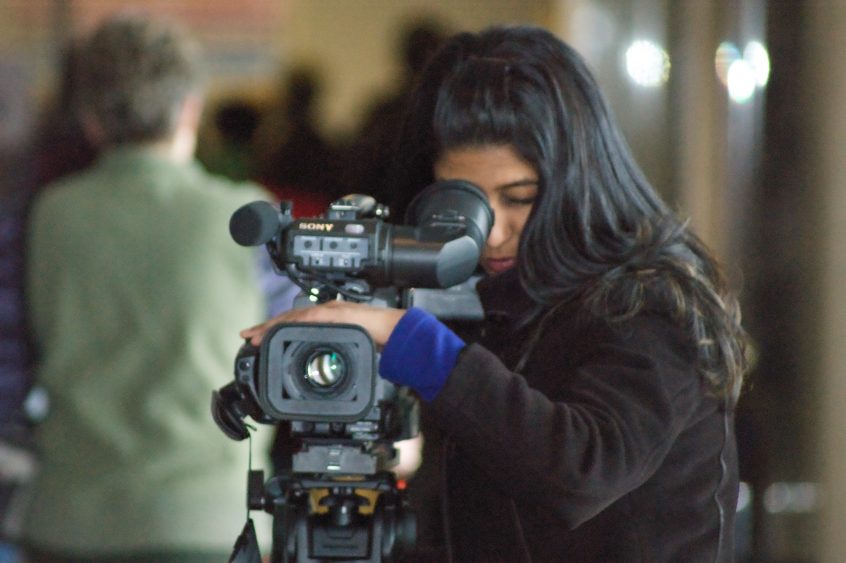Videographer is a bit of an old fashioned word. But you’d be surprised how many people look for one on a daily basis here in Perth. To have a corporate video made, you search for a videographer, right? That’s what appears to be the most logical thought, and as a Marketing Director or Manager, you might even have prepared the script for your corporate video internally, with the Management Team. As Wikipedia states, it’s virtually a camera operator. Here’s 5 reasons why that approach tends to be old school and how to think outside the square when you embark on a video journey with your business.
A Videographer:
1) Will focus on selling technical time
The conversations you will have with your supplier will mainly cover the amount of hours it takes to film the actions you have in mind, and the time needed to stitch it together in the editing suite.
It will put most of the responsibility for content decisions in your team and open the door for a lot of work on your end of the co-production team.
2) Won’t necessarily contradict you as a customer
A camera operator will be in his/her role as an executor of what you have decided. You may think certain sequences need to be in there, but might have made that decision without a proper background in film language.
Although made with the right intention, the decision or choice can ruin the communication process between your brand (represented by the video) and the target audience, if proper film grammar isn’t applied.
3) Will design the shoot around gear
A videographer given the instructions to make great footage (raw, unedited vision), will see if they can outperform the competition by…solely focusing on that.
This is why many people look unnatural in corporate videos. The team around them was so busy setting up light, testing microphones and switching lenses, that they forgot about the energy in the room.
4) Considers the job as done after the shooting day
Once all vision has been captured, the videographer is off the hook. The raw material has been created and is then passed on to an editor, supervised by a producer. In big productions for TV and cinema,
this is a well oiled process. In small video production companies, this is where a lot of corners are being cut, creating noise in the conversation.
5) …is only a videographer
With that workflow, the videographer won’t necessarily take ownership of the script or the final cut. They aren’t paid for it, so we can’t even blame them for that.
So hold on…is there an alternative?
Over the last decade, video production moved away from the traditional role-driven process. The new paradigm is to build in more ownership. A multi-media producer masters and combines multiple skills in the process.
And this is where solo-producers, or multi media makers, come into play. Our producers are trained to assess a story, to create story-boards, to film with the energy and the people in mind, and to build a story using the building blocks
wisely for maximum impact.
Videos made with this in mind, allow for more integrated use of all the building blocks, and for higher impact with the target audience. Here’s an example:
This workflow allows businesses to use video, where before they had to let go of the idea for cost reasons. A videographer, a sound engineer, a director and a producer, plus an editor and a motion graphics designer, not to mention
the social media expert…would have been part of the “old school” model. Now, a multi-skilled team takes care of all of that, taking complete ownership from start to finish.
The other benefit? You don’t have to remember as many names as before. If you want to hear how this opens plenty of opportunities to consistently use video in your blog updates or social media strategy, please get in touch!
Kris Borgraeve
Latest posts by Kris Borgraeve (see all)
- Video Strategies to Grow Your Business - 01/04/2017
- Square Social Media Videos - 27/11/2016
- Videos for the web: 5 basic rules - 29/09/2016


